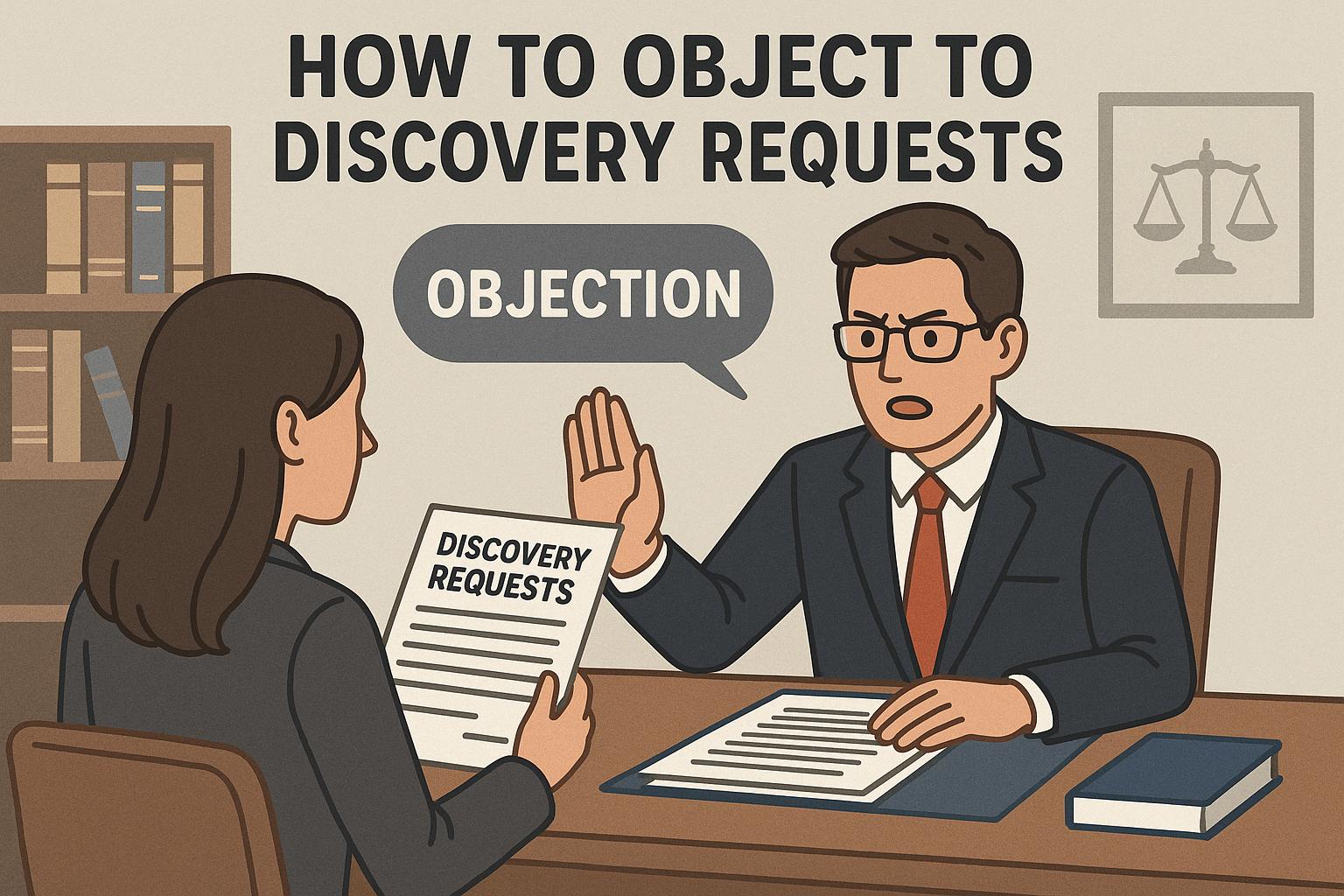Understanding Discovery Requests
In legal proceedings, discovery is a pivotal stage where involved parties exchange pertinent information related to the case. This process provides an opportunity for both sides to assemble evidence and articulate their arguments more efficiently. Nevertheless, not all discovery requests are justifiable or allowable. Learning how to object to inappropriate requests is essential in safeguarding oneself from unnecessary burdens or exposure to irrelevant information.
Grounds for Objection
The ability to object to discovery requests is a fundamental safeguard within legal processes. However, it is necessary to recognize a valid justification to contest a request. Here are some frequent grounds for objections:
Irrelevance
The data pursued must be pertinent to the subject matter of the case. If a request is made for information that is unrelated to the issue at hand, it can be contested on the basis of irrelevance. This criterion preserves the concentration and productivity of the discovery phase.
Overbreadth
A request deemed excessively wide-ranging or demanding more information than necessary can be contested as overbroad. To ensure the success of an objection under this premise, it’s crucial to demonstrate how the request surpasses reasonable limitations.
Privilege
Certain kinds of information are protected by privilege, including communications between a client and their counsel. If a discovery request targets such privileged information, an objection can be raised to protect these sensitive communications from exposure.
Undue Burden
An objection based on undue burden can be made if fulfilling a discovery request imposes an unacceptable level of cost, time, or effort. To substantiate this objection, evidence must be presented to illustrate how compliance would be excessively taxing.
Crafting Effective Objections
When formulating an objection to a discovery request, it is imperative to construct objections that are clear and precise. Objections characterized by vagueness or generality are less likely to be validated. Here’s a guide to ensuring that objections are effectively structured:
Specificity
Clearly specify the grounds for objection. Rather than merely stating “the request is burdensome,” elucidate why it constitutes an undue burden, such as detailing the time and resources necessary for compliance.
Provide Supporting Evidence
Whenever feasible, supply evidence that bolsters the objection. For instance, if asserting undue burden, quantify the associated costs or time required to meet the request.
Conform to Legal Standards
Ensure that the objections align with applicable legal standards and rules. Familiarize yourself with the local and federal rules governing discovery to ascertain proper compliance.
Formal Response Process
After meticulous crafting, an objection must be formally submitted as part of the response to the discovery request. Typically, this involves delivering a response within a specified period, often 30 days, and clearly articulating each objection relative to the corresponding request.
Use of Written Objections
Every objection should be meticulously documented in writing. The written response should clearly demarcate which components of the request are being objected to and which, if any, will be adhered to.
Addressing Partial Compliance
In situations where only a portion of a request is objectionable, indicate openness to comply with sections of the request that are unobjected to. This approach reflects the intention to cooperate reasonably during the discovery process.
Resolution of Disputes
In scenarios where objections remain unresolved, the issue may necessitate judicial intervention. The involved parties are generally urged to settle disputes internally before resorting to legal action. Frequently, a meet-and-confer session is advised to discuss and resolve lingering objections amicably.
While it is vital to challenge unreasonable discovery requests, doing so thoughtfully and respectfully aids in preserving the integrity of the legal process. Taking such steps can potentially avert prolonged disputes, fostering a more efficient resolution.
